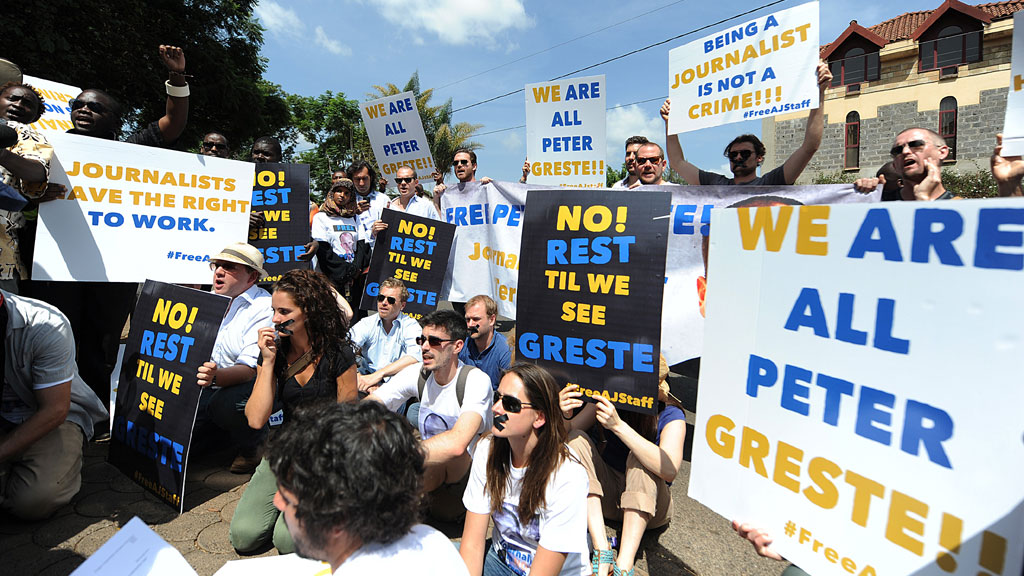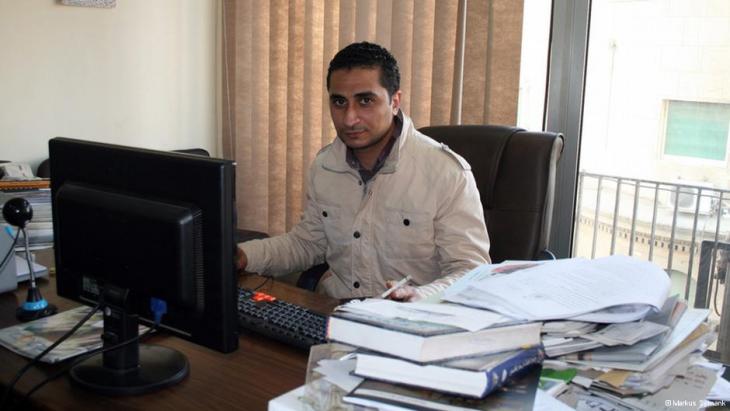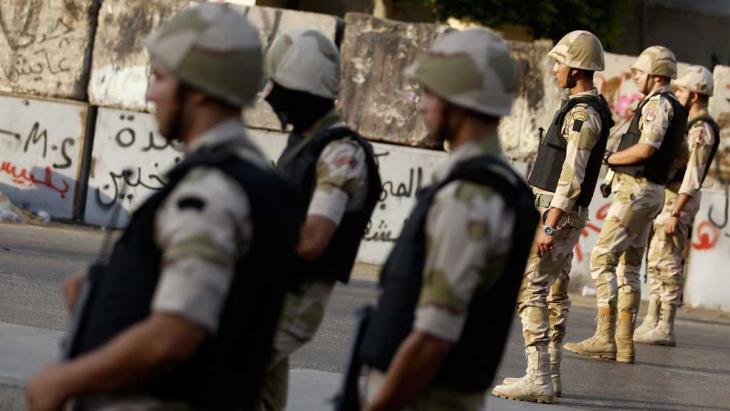Egypt settles scores with Al Jazeera

The big pile of paper on lawyer Ahmed Ezzat's desk is the official indictment against 20 journalists from the news channel Al Jazeera, who have been in court in Cairo since Thursday, 20 February 2014. The indictment lists many serious accusations, from "spreading false news" to "membership of a terrorist organisation". According to Ezzat, however, the indictment contains no indication of hard evidence to back up the allegations.
Ezzat, the director of the legal unit at Egypt's Association for Freedom of Thought and Expression, considers the trial a political one. He accuses the government of mobilising against the freedom of the press: "They want to control everything and restore order on the streets. And to achieve that, they're trying to silence all disagreeable voices."
Increasing repression
The trial of the Al Jazeera employees is not the only case against journalists in Egypt. At least 11 other reporters and cameramen are currently in prison on similar charges. The high level of attention being paid to the Al Jazeera case is partly because four of the defendants are foreigners: an Australian man, a woman from the Netherlands, and two British men.

Three of them are not in the country; only the award-winning Australian reporter Peter Greste is being held in a high-security prison in Cairo. Since the army ousted President Mohammed Morsi, foreign journalists have come under increasing scrutiny by the Egyptian authorities. "The security forces are not only arresting them, beating them and destroying their cameras," says Ezzat. "They're also stirring up public opinion against them." In the past month, army supporters have brutally beaten several foreign journalists, including two working for the German public broadcaster ARD.
Ahmed Ezzat describes the current behaviour of those in power as "schizophrenic": on the one hand, he says, they are going to great lengths to give the West the impression that they are a democratic government; on the other, their repressive treatment of the domestic press – and also increasingly of foreign journalists – shows a very different side to them.
No permits
The subject of the Al Jazeera case is hotly debated among Egyptian journalists. Newspapers and TV channels allied with the state are entirely behind the government, accusing foreign journalists of a wide variety of crimes. For them, Al Jazeera tops the list of the most-hated news channels in Egypt.
The emirate of Qatar, where Al Jazeera is based, has close links to the Islamist Muslim Brotherhood, to which the ousted president Mohammed Morsi belongs. The government had local employees of the channel arrested in Cairo as early as last summer. Al Jazeera lost its broadcasting licence a short time later; reporters then had to operate illegally.

A journalist from the privately owned newspaper "Al-Masry Al-Youm", who would like to remain anonymous, suspects that this is the only thing they will be able to pin on the defendants. "I think it's a mistake on both sides. The Al Jazeera journalists didn't have work permits. But that's also due to a failure on the part of the government." Numerous other foreign reporters are currently working without permits, as the authorities often ignore applications or only process them after a long delay.
Criticism of political justice
The "Al-Masry Al-Youm" journalist is perfectly open about the fact that he has no sympathy for Al Jazeera. But he does consider the government's actions dangerous: "Freedom of the press is going through a difficult phase in Egypt. It has become very awkward to express a deviating opinion, whether as an individual or as a newspaper."
The lawyer Ahmed Ezzat says the motivation for the Al Jazeera trial is to scare both foreign and Egyptian journalists. He points out that several of the defendants are being held in solitary confinement, like terrorists. One of them, Mohammed Fahmi, was refused medical assistance for a broken shoulder for weeks.
Ezzat warns that the government might try to set an example. In recent months, he says, sentences have been handed down in other trials despite a lack of credible evidence. "This is a very dangerous development. People used to trust the justice system in the past; they saw it as the last bastion against the regime's oppression." That, he says, is no longer the case.
Markus Symank
© Deutsche Welle 2014
Translated from the German by Katy Derbyshire
Editor: Aingeal Flanagan/Qantara.de
